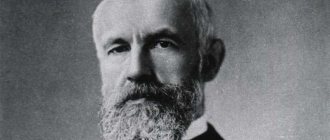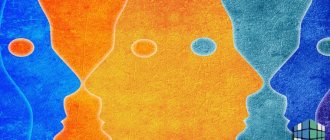Psychology as a science originated in Ancient Greece and is still a relevant field. Based on the treatises and works of scientists, mechanisms, models and systems have been developed to study the behavior, perception, awareness and adaptability of a person in society. Let's learn a brief history of psychology, and also get acquainted with famous figures who made a huge contribution to the development of this humanitarian science.
A Brief History of Psychology
Where did it all start? How did psychology emerge as a science? In fact, this branch is closely connected with philosophy, history, and sociology. Today, psychology actively interacts with biology and neuropsychology, despite the fact that initially scientists in this field tried to find evidence of the existence of the soul in the human body. The name itself comes from two derivatives: logos (“teaching”) and psycho (“soul”). It was only after the 18th century that scientists made a subtle connection between the very definition of science and human character. And so a new concept of psychology appeared - researchers began to build psychoanalysis, study the behavior of each person, identify categories and pathologies that affect interests, adaptability, mood and life choices.
Many great psychologists, such as S. Rubinstein and R. Goklenius, noted that this science is important in human knowledge. From time immemorial, researchers have been studying the connection between reason and religion, faith and spirituality, consciousness and behavior.
Psychology in the Middle Ages
The Middle Ages period is often associated with witch hunts, superstition and demonic possession. In many ways this is true, but this is not the whole truth. Let's find out how things were in those days with the study of the mind and the development of psychological science.
In the Middle Ages, researchers sought to understand the connection between man and God, so theological views extended to psychology. Western European theologians held the idea that God was the creator, towering above all beings, and humans, being the pinnacle of his creation, possessed a soul that connected them with the divine. According to Christian beliefs, man was endowed with an inner spirit that was separate from the soul and body, reflecting the belief in the tripartite nature of God.
The most prominent representative of psychological thought of that time was Aurelius Augustine, who became the first philosopher who suggested that a person has an “inner self”: if he is one with it, then he is healthy, but internal disunity leads to the development of illnesses.
Augustine came to the following conclusions from various areas of psychology:
- Babies are self-centered and socially unaware. Fear of punishment is a barrier to learning because it inhibits curiosity.
- Memory is the most important aspect of the mind and the command point of mental functioning; all skills and habits depend on its state.
- Thoughts and impulses suppressed during wakefulness can manifest themselves in sleep. At the same time, a Christian should not experience pangs of conscience, since it is impossible to sin in dreams.
- All people experience an internal struggle between self and God. This conflict leads to chaos in the outside world.
- Love is the basis of happiness, and the desire to possess what a person cannot have is the source of suffering. It is necessary to develop the ability for unconditional love, which changes the nature of thinking for the better.
Augustine also coined the term “original sin” and believed that all people are born sinners. This view influenced the church for several centuries and did much to hinder the study of reason until the Renaissance.
What it is
Psychology as an independent science studies mental processes, human interaction with the outside world and behavior in it. The main object in the teaching is the psyche, which translated from ancient Greek means “spiritual”. In other words, the psyche is the realized actions of a person, which are based on primary knowledge about reality.
Brief theses defining psychology:
- This is a way of knowing yourself, your inner and, of course, the world around you.
- This is a “spiritual” science, because it forces us to constantly develop, asking eternal questions: who am I, why am I in this world. That is why there is a subtle connection between psychology and sciences such as philosophy and sociology.
- This is a science that studies the interaction of the external world with the psyche and its influence on others. Thanks to numerous studies, a new branch was created - psychiatry, where scientists began to identify pathologies and psychological disorders, as well as stop them, treat them, or completely destroy them.
- This is the beginning of the spiritual path, where great psychologists, together with philosophers, sought to study the connection between the spiritual and material world. Despite the fact that today the awareness of spiritual unity is just a myth that came from the depths of time, psychology reflects a certain meaning of existence - ordered, cultivated, organized thousands of years later.
Methods of psychological influence
For example, many are interested in what methods are used to exert psychological influence on people. Have you been interested in this question? It is useful to know this in order not to succumb to manipulation by other people and to apply these methods in communication yourself (of course, with good intentions).
So, the main methods of psychological influence are as follows:
- Infection
This is the transfer of an emotional state from one person to another. The “target” person is usually infected unconsciously: the emotional state is read subconsciously. This applies to various strong feelings: euphoria, delight, panic, anger, fear.Infection is the oldest method of psychological influence. Many religious rituals and various public events (demonstrations, strikes, rallies, performances) are based on it.
- Suggestion
This is persuasion of a person using words against an emotional background. Suggestion will be powerful if you speak confidently, reinforcing the meaning of the words with an appropriate tone, emotional facial expressions and gestures. The most suggestible are people who are unsure of themselves and those who do not perceive information critically (that is, questioning it and looking for arguments).The most popular method: the manipulator presents the desired behavior of the “target” person as real, and evaluates it positively. For example, the head of the city may say: “I thank the residents for observing the mask regime,” although, in fact, the citizens did not even think about wearing masks. By replacing an expected fact with an allegedly accomplished one, the speaker tries to induce people to a certain behavior.
Or another example: in a conversation with an absent-minded colleague, some kind of “I love doing business with you because you pay attention to my words” may work.
It is also effective to combine the suggested information with facts that the person himself has experienced, which are familiar to him and will cause a response.
- Persuasion
This is the delivery of information by constructing a logical chain. The most harmless way, without manipulation, falsehood and emotions. - Imitation
Reproduction by a person of a pattern of behavior: manner of speaking, gait, gestures, facial expressions, clothing, and so on. Usually happens on a subconscious level.
What does psychology study?
Let's answer the main question - what does the science of psychology study? First of all, all mental processes and their components. Researchers have found that these processes can be divided into three types: will, feelings, cognition. These include human thinking, memory, emotions, goals, and decision making. This gives rise to the second phenomenon that science studies—mental states. What psychology studies:
- Processes. Attention, speech, sensitivity, affect and stress, feelings and motives, representation and curiosity.
- States. Fatigue and emotional outbursts, satisfaction and apathy, depression and happiness.
- Properties. Abilities, unique character traits, types of temperament.
- Education. Habits, skills, areas of knowledge, abilities, adaptability, personal traits.
Let's now begin to formulate an answer to the main question - how did psychology emerge as a science? Initially, researchers paid attention to simple mental phenomena, which they began to observe. It was noted that any mental process can last just a few seconds or more, sometimes reaching 30-60 minutes. This aroused genuine interest, and subsequently all mental activity of people was classified as complex brain processes.
Today science studies each individual individually, identifying new mental phenomena, although previously everything was divided into several types. Feelings of depression, causes of irritation, absent-mindedness, mood swings, character and temperament formation, self-development and evolution are only a small part of what influenced the development of psychology as a science.
Additions and auxiliary materials
Below we consider several formats of additional and auxiliary materials on psychology:
Psychological games and exercises
Games and exercises created specifically to understand the characteristics of the human psyche. There are different types of such games and exercises: for children and for adults, mass and single, for men and women, arbitrary and targeted, etc. The use of psychological games and exercises helps people understand others and themselves, form some qualities and get rid of others, etc. This includes exercises for developing various qualities, overcoming stress, increasing self-esteem, role-playing, developmental, health games and many other games and exercises.
Books, textbooks, magazines
This category of additional materials includes any printed publications devoted to the topic of human psychology. They contain a huge amount of useful theoretical and practical information, the study of which can take many months and years. The authors of books, textbooks and articles in journals can be both professional specialists in the field of psychology and amateur researchers. It is important to be able to choose the highest quality ones from the variety of existing publications, i.e. informative, readable and popular with readers.
Psychological experiments
Psychological experiments are experiments conducted in social conditions to obtain new psychological knowledge. Experiments can be carried out by both specialist scientists and ordinary people who want to gain some knowledge in psychology. When conducting experiments, it is important that they have a specific purpose and are safe for others. The most famous, but, unfortunately, not the most humane psychological experiments are considered to be:
- Hawthorne experiment
- Milgram experiment
- Stanford prison experiment
- Ringelmann experiment
- Experiment “Me and Others”
- "Monstrous" experiment
- Project "Aversia"
- Landis experiments
- Little Albert
- Acquired (learned) helplessness
- Boy raised like a girl
Psychological effects
Psychological effects are stable and easily defined patterns that reflect the interpersonal relationships of people in a group and reveal the specifics of the processes characterizing the parameters of interaction and communication between people. Psychological effects have proven their effectiveness more than once. They can often be observed in real life and specially recreated for the purpose of experiment. The most well-known psychological effects are:
- Placebo effect
- Veblen effect
- Zeigarnik effect
- Cold reading
- Pygmalion effect
- Barnum effect/Forer effect
- Audience effect
- Sequence effect
- Hawthorne effect
- Doctor Fox Effect
- First impression effect
- Bystander effect
- Halo effect
Psychological tests
Psychological tests are various kinds of collections of special exercises/questions/tests created to identify mental characteristics, patterns, phenomena and properties of people. Such tests are widely used by researchers in specialized institutions and under normal conditions. Tests have also found wide application in many areas of human life: science, education, work, business and others. The most common are tests to determine the level of intelligence, abilities, personal qualities, interests, aptitudes, career guidance, etc.
Videos on psychology
The list of video materials includes documentaries on psychology, feature films with a psychological focus, webinars, recordings of lectures, trainings, seminars, various videos, etc. Video materials are good because many aspects of human psychology are shown clearly, i.e. a person receives visual confirmation of the information received, examples of applying knowledge in practice, can see people’s reactions, etc. Video materials on psychology are freely available on the Internet, and anyone can access them.
The main tasks of science
How did psychology emerge as a science? It all started when thinkers and philosophers began to pay attention to mental processes. This became the main objective of the teaching. Researchers analyzed the features of all processes directly related to the psyche. They believed that this direction reflects reality, that is, all events influence the psycho-emotional state of a person, which prompts him to take one action or another.
The analysis of all phenomena related to the psyche and their development is the second task of science. Then a third, important stage in psychology appeared - the study of all the physiological mechanisms that control mental phenomena.
If we talk about the tasks briefly, we can divide them into several points:
- Psychology should teach us to understand all psychological processes.
- After this, we learn to control them, and then completely manage them.
- We direct all knowledge into the development of psychology, which is closely related to many humanities and natural sciences.
Thanks to the main tasks, fundamental psychology (that is, science for the sake of science) was divided into several branches, which include the study of children's characters, behavior in the work environment, temperament and traits of creative, technical and sports individuals.
Behaviorism
At the beginning of the 20th century, scientists' approach to psychology changed dramatically. They abandoned the emphasis on the conscious and unconscious, directing their attention to the study of behavior. This is how behaviorism appeared. The goal of its proponents was to study only completely objective and observable processes: no introspection and no discussion of mental concepts.
One of the most ardent proponents of behaviorism was the American psychologist John Watson, who, adhering to a purely scientific approach, sought to study behavior without making any assumptions beyond the scope of experience available to the senses.
Watson was of the opinion that the context and environment in which a person finds himself completely determines his behavior. This idea was later developed by Berres psychologist Frederick Skinner. He introduced the concept of operant conditioning and demonstrated in rats how punishment and reinforcement affect behavior.
Techniques used by science
All stages of the development of psychology as a science are associated with great minds, thinkers and philosophers, who developed an absolutely unique field that studies the behavior, character and skills of people. History confirms that the founders of the doctrine were Hippocrates, Plato and Aristotle - authors and researchers of antiquity. It was they who suggested (of course, at different periods of time) that there are several types of temperament that are reflected in behavior and goals.
Psychology, before becoming a full-fledged science, has come a long way and affected almost every famous philosopher, doctor and biologist. One of these representatives is Thomas Aquinas and Avicenna. Later, at the end of the 16th century, Rene Descartes participated in the development of psychology. In his opinion, the soul is a substance within a substance. It was Descartes who first introduced the word “dualism” into use, which means the presence of spiritual energy inside the physical body, which cooperate very closely with each other. Reason, as the philosopher established, is the manifestation of our soul. Despite the fact that many of the scientist’s theories were ridiculed and refuted several centuries later, he became the main founder of psychology as a science.
Immediately after the works of Rene Descartes, new treatises and teachings began to appear, written by Otto Kasman, Rudolf Gocklenius, Sergei Rubinshein, and William James. They went further and began to promulgate new theories. For example, W. James at the end of the 19th century proved the existence of a stream of consciousness through clinical research. The main task of the philosopher and psychologist was to discover not only the soul, but also its structure. James proposed that we are a dual being, inhabited by both subject and object. Let's look at the contributions of other equally significant scientists, such as Wilhelm Maximilian Wundt and Carl Gustav Jung, etc.
Psychology Research Methods
Psychology is a science that operates with certain means and techniques that allow not only to build a scientific theory, but also to develop practical recommendations. Initially, psychology used methods obtained by other exact and natural scientific disciplines, as well as: speculative reasoning, introspection (self-observation) and observation of the behavior of people and representatives of the animal world.
The analysis obtained using such methods could not be considered objective, so a number of research methods were added to expand the categorical apparatus. As a result of an experiment conducted within certain external conditions, it is possible to find out a lot of useful information regarding the life activity of the subject. Experiments can be pilot (trial), psychological and pedagogical, natural and laboratory.
Before starting an experiment, the researcher must set himself a specific task, to find a solution for which he moves from theory to practical actions. As a result of a series of experiments with changes in various environmental factors and by comparing the data obtained, the specialist strives to obtain the most objective picture.
Observation
Observation is the purposeful perception and recording of the characteristics of the subject’s behavior in the researcher’s memory or on a physical medium. This method is used in cases where interference with natural activities is impossible or extremely undesirable. Observation can be unsystematic and systematic, selective, continuous, direct, laboratory, field, direct and indirect.
For the greatest effectiveness of the method, observation should be carried out by a group of specialists and recorded on videotape or digital media. The American Psychological Association has developed a unique code of ethics, according to which there are certain rules for observing subjects:
- the researcher minimizes intrusion into the personal space of the subjects;
- the specialist must not allow any harm to be caused to the physical or mental health of the subjects;
- Confidential information about participants obtained as a result of experiments is not subject to disclosure.
As an example of the practical use of the observation method, we can cite a situation with a child whose parents want to send to a section, but cannot decide on a circle. In this case, the best solution would be to follow the baby, leaving him alone with brushes, paint, paper, a rubber ball or construction set. If a child starts drawing, it is highly likely that he will be interested in art school. The choice in favor of a designer speaks of a technical mindset, and a young engineer should be brought into an auto or aircraft modeling club. Balls and rackets attract children who are able to demonstrate decent results in various sports disciplines.
Self-observation
The method is a process of independent observation of one’s own behavior. It is used to state facts and register in memory certain events, situations and reactions to them. The quality of self-observation is influenced by a person’s self-esteem. Subjects who are insecure tend to show hypertrophied attention to their shortcomings and mistakes, which develops complexes and phobias that are difficult to correct later. For adequate and effective self-monitoring you will need:
- personal diary for regular entries and notes;
- comparison of observed results with the assessments of others;
- getting rid of feelings of guilt that have destructive potential.
To increase efficiency in everyday activities, it is worth taking the observation method as a rule and using it to solve various problems. For example, a person who wants to quit smoking will need to engage in a state of mindfulness as often as possible throughout the day. At the moment of the next attack of irritation and anger due to a lack of nicotine, it is worth asking the question about the reasons for the development of a destructive addiction and ways to get rid of it. The first positive results can be seen after just a few weeks of self-observation practice.
Psychological tests
When listing the existing methods used in this discipline, one cannot fail to mention psychological testing. It is often used because it allows one to obtain a number of valuable information regarding the personality and behavioral characteristics of an individual. Psychological tests must be representative (meet established standards), reliable (provide real results), reliable and valid. To create a truly effective test, a test cycle is required with further adjustments to the number of questions, wording, and the algorithm for calculating the final results.
Psychological tests are aimed at establishing a person’s level of intelligence, his ability to verbally express learned information, as well as obtaining a picture reflecting behavioral motives, needs and ways to achieve emotional stability. At the moment, many state (municipal) and private employers at interviews offer applicants to take a vocational orientation test, tailored to the specifics of the proposed vacancy.
Conversations
Psychology studies the influence of external and internal factors that provoke the formation of a particular model of behavior. Conversation in written or oral form is considered an effective method that falls under the category of observations. Before communicating with the subject, the specialist must be armed with a consistent discussion plan and make efforts to establish contact. The interviewer needs to monitor the wording of the questions asked, making them as accurate and understandable as possible for the interlocutor.
The researcher’s task is to record the conversation on a tape recorder or paper for further analysis. It is important to observe the reaction of the interlocutor and make notes in the margins if any questions or answers cause a pronounced emotional reaction on the part of the interviewee. To prove the effectiveness of conversation as a psychological method, a simple example from everyday life can be given. Many people have had the opportunity to notice a close friend or acquaintance in a state of anxiety and sadness, find out about the cause of the disorder and support him with kind words and practical recommendations. After a conversation in warm tones, a saddened person instantly cheers up and stops moping.
Suggestion
Psychology is a science based on an extensive theoretical and practical basis. Methods of practical psychology include suggestion. This concept denotes the process as a result of which the person under study accepts certain attitudes at a conscious or subconscious level. Communicative suggestion is based on emotional or verbal influence. Indirect suggestion requires intermediate stimuli and actions aimed at achieving and consolidating specific behavioral patterns.
There is negative, positive, as well as intentional and unintentional suggestion. Covert manipulation techniques include truism and providing a false alternative. Among the techniques of indirect suggestion are hints, approval and condemnation. Currently, the method of suggestion is actively used to put a person into a trance state and in various hypnotic practices. On its basis, the principle of implicit manipulation is built, which is involved in the field of politics and advertising business.
Fun fact! The famous Placebo effect, when a patient recovers after taking a dummy drug, is based on the method of suggestion.
Other methods
The comparative genetic method is used when it is necessary to compare different groups that have different psychological criteria. The biographical method involves analyzing a long period of the subject’s life, highlighting the factors that influenced the formation of personal qualities, as well as important factors and turning points that contribute to changes in the behavioral structure.
The method of psychological modeling is considered the most reliable and best way to check how a particular person will behave in the event of unfounded criticism of oneself - to approach him and accuse him of something he did not do. However, it is strongly not recommended to use it in practice if the researcher wants to maintain a normal relationship with the subject.
S. Rubinstein
Sergei Leonidovich Rubinstein is one of the founders of a new school in psychology. He worked at the beginning of the 20th century at Moscow State University, was a teacher and at the same time conducted research. Sergei Leonidovich Rubinstein's main contribution was made to educational psychology, logic and history. He studied in detail personality types, their temperament and emotions. It was Rubinstein who created the well-known principle of determinism, which meant that all human actions and actions are directly related to the external (surrounding) world. Thanks to his research, he was awarded numerous medals, orders and prizes.
Sergei Leonidovich described his theories in detail in books, which were subsequently put into circulation. These include “The Principle of Creative Amateur Performance” and “Problems of Psychology in the Works of Karl Marx.” In his second work, Rubinstein considered society as a single whole that follows a single path. To do this, the scientist had to conduct a deep analysis of the Soviet people and compare them with foreign psychology.
Sergei Leonidovich also became the founder of the study of personalities, but, unfortunately, he was unable to complete the work. However, his contribution significantly advanced the development of Russian psychology and strengthened its status as a science.
Structuralism
Structuralists believed that the best way to understand how the mind functions was to break it down into its basic elements and examine each of them. Titchener concluded that there are three groups of mental components that form conscious experience:
- Feel.
- Images.
- Attachments (feelings, emotions).
He used introspection (self-analysis) as the only method for studying these elements, believing that those processes that cannot be studied using this technique do not belong to the field of psychology. As a result, the structuralists' over-reliance on dubious and rigorous methodology led them to a fruitless dead end. Essentially, structuralism died with Titchener, and was replaced by an alternative approach known as functionalism.
O. Kasman
Otto Kasmann played a significant role in psychology, despite the fact that for a long period he was the main pastor and theologian in the German city of Stade. It was this public religious figure who called all psychic phenomena scientific objects. There is practically no information about this founder, since quite a lot of events happened over four centuries. However, Otto Kasmann left us valuable works called Psychologia anthropologica and Angelographia.
The theologian and activist made adjustments to the term “anthropology” and explained that the biological nature of man is directly related to the abstract world. Despite the fact that Kasman made an invaluable contribution to psychology, the pastor himself carefully studied anthropology and tried to draw a parallel between this teaching and philosophy.
Transform yourself!
As paradoxical as it may sound, the inner world is the reverse side of the outer world. Start working on yourself by transforming your appearance. Many of a woman’s internal problems are related to the fact that she simply doesn’t like herself. And self-love is an integral component of happiness.
The most effective and safe way to quickly transform yourself is natural rejuvenation. And here there is no competition “Basic Marathon”, our hit and pride. He has helped hundreds of thousands of women around the world become prettier.
The Basic Marathon lasts only three weeks. You will only need 5-35 minutes a day of exercise and self-massage! The result will be a straight back, straightened shoulders, an elongated neck, a toned figure and a youthful face. We remove the double chin, jowls, nasolabial lips, wrinkles, raise the corners of the lips, open the eyes, tighten the oval of the face, smooth the forehead.
Hurry up to take part in the “Basic Marathon”. On February 1, its new version, updated by 60%, will launch. Even more feedback from Annette: the most legendary beauty trainer in the country will bring you results.
R. Gocklenius
Rudolf Gocklenius is an important link in psychology, despite the fact that he was a doctor of physical, mathematical and medical sciences. The scientist lived in the 16th and 17th centuries and during his long life he created many important works. Like Otto Kasmann, Goklenius began to use the word “psychology” in everyday life.
An interesting fact, but Goklenius was Kasman’s personal teacher. After receiving his doctorate, Rudolf began to study philosophy and psychology in detail. That is why today we are familiar with the name of Goclenius, because he was a representative of neo-scholasticism, which combined both religion and philosophical teachings. Well, since the scientist lived and worked in Europe, he spoke on behalf of the Catholic Church, which created a new direction of scholasticism - neo-scholasticism.
Application of psychological knowledge
The use of psychological knowledge is necessary and useful in absolutely any area of human activity: family, study, science, work, business, friendship, love, creativity, etc. But it is important to learn how to apply the relevant knowledge in different situations. After all, what may work effectively in communication with work colleagues may not be suitable at all in a relationship with a loved one. What is suitable for the family may not be useful in creativity. Although, of course, there are general techniques that are universal and work almost always and everywhere.
Knowledge of human psychology is the ability to solve many problems with significantly greater speed and efficiency, increasing the ability to withstand adversity and failure, and the ability to achieve outstanding results where others cannot.
The skill of applying psychological knowledge, provided it is systematically and regularly reinforced, will make you a stronger person with significant advantages over others. It would take a very, very long time to list all the advantages. But, as they say, it is better to see once than to hear a hundred times. And drawing an analogy with this saying, we can say that it is better to apply it once than to read it a hundred times.
It is also worth noting that knowledge of psychology has long been used by you in everyday life. But this is only done spontaneously, unconsciously and without understanding what strength, power and potential this knowledge actually carries. And if you truly want to become closer to your “best you” and improve your life, it can and should be intentionally learned.
W. Wundt
The name of Wundt is known in psychology as well as Jung and Rubinstein. Wilhelm Maximilian lived in the 19th century and was an active practitioner of experimental psychology. This movement included non-standard and unique practices that made it possible to study all psychological phenomena.
Like Rubinstein, Wundt studied determinism, objectivity, and the fine line between human activity and consciousness. The main feature of the scientist is that he was an experienced physiologist who understood all the physical processes of living organisms. To some extent, it was much easier for Wilhelm Maximilian to devote his life to such a science as psychology. Over the course of his life, he trained dozens of figures, including Bekhterev and Serebrenikov.
Wundt sought to understand how our mind works, so he often conducted experiments that allowed him to figure out chemical reactions in the body. It was the work of this scientist that laid the foundation for the creation and promotion of such a science as neuropsychology. Wilhelm Maximilian loved to observe people's behavior in different situations, so he developed a unique technique - introspection. Since Wundt himself was also an inventor, many experiments were worked out by the scientist himself. However, introspection did not include the use of devices or instruments, but only observation, as a rule, of one’s own mental phenomena and processes.
Separation into a separate science
The history of the emergence and development of psychology occupies a huge period of time, which lasts thousands of years. Psychology began to stand out as a separate science only in the second half of the 19th century. By this moment, a large amount of scattered psychological knowledge had accumulated, which needed to be systematized, separated from other teachings and directions.
The founder of psychological science was W. Wundt. His work “Fundamentals of Physiological Psychology,” which was written in 1873–1874, combined a lot of accumulated knowledge into a separate teaching. The scientist called it physiological psychology.
In 1879, Wundt founded an experimental psychological laboratory in Leipzig. Then the first experimental psychologists appeared. The main subject that novice specialists studied was the study of their own consciousness and behavior.
Another psychologist, W. James, spread the combined knowledge of Wundt throughout America. He subsequently became the first professor of this science at Harvard University.
Another famous scientist who contributed to the history of psychology is E. Titchener. He graduated from Oxford University and then worked for Wundt. Having adopted knowledge from his teacher, he returned to America and created a scientific school of experimental psychology at Cornwall University.
K. Jung
Carl Gustav Jung is perhaps one of the most popular and ambitious scientists who devoted his life to psychology and psychiatry. Moreover, the figure not only tried to understand psychological phenomena, he also opened a new direction - analytical psychology.
Jung carefully worked out the archetypes or structures (patterns of behavior) that come into being with a person. The scientist carefully studied each character and temperament, connected them with one link and supplemented them with new information by observing his patients. Jung also proved that several people, being in a single team, can unconsciously perform similar actions. And it was thanks to these works that the scientist began to analyze the individuality of each person, to study whether it exists at all.
It was this figure who suggested that all archetypes are innate, but their main feature is that they develop over hundreds of years and are passed on from generation to generation. Subsequently, all types directly influence our choices, actions, feelings and emotions.
Psychology: lecture notes
2. The formation of psychology as a science
1. The development of psychology from ancient times to the middle of the 19th century.
2. The formation of psychology as an independent science.
3. Modern psychological concepts.
1. Interest in problems that are classified as psychological arose in man in ancient times.
The philosophers of ancient Greece in their treatises tried to penetrate the secrets of existence and the inner world of man.
Ancient philosophers explained the psyche based on the four elements on which, in their opinion, the world was based: earth, water, fire and air.
The soul, like everything in this world, consisted of these principles.
The ancients believed that the soul is located where there is heat and movement, that is, all nature is endowed with a soul.
Subsequently, the doctrine that spiritualizes the whole world received the name “animism” (from the Latin “anima” - “spirit”, “soul”).
Animism was replaced by a new philosophical doctrine - atomistic.
Aristotle was a prominent representative of this trend.
.
He believed that the world
is a collection of the smallest indivisible particles - atoms, which differ from each other in different mobility and size, and the material carriers of the soul are the smallest and most mobile.
Based on this mobility of atoms, Aristotle explained the mechanisms and laws of functioning of many mental phenomena: thinking, memory, perception, dreaming, etc.
Aristotle's treatise “On the Soul” is considered by many scientists as the first major scientific study in psychology.
According to Aristotle, a person has three souls: vegetable, animal and rational.
The mind depends on the size of the brain, emotions - on the heart.
Democritus was a representative of materialistic views.
. He believed that everything in the world consists of atoms.
Atoms exist in time and space, in which everything moves along a given path. In infinite space, indivisible and impenetrable particles move according to certain laws; the soul is formed by light, spherical particles of fire.
The soul is a fiery principle in the body, and death occurs as a result of the disintegration of the atoms of the soul and body. Both body and soul are mortal.
The merit of Democritus is that he initiated the development of the theory of knowledge, especially visual sensations. He developed recommendations for memorization, dividing the methods of preserving material into material and mental.
It is impossible not to mention the views of Plato
.
According to his views, a person is a prisoner in a cave, and reality is his shadow.
Man has two souls: mortal and immortal.
The mortal solves specific problems, and the immortal, whose life continues after death, is the very core of the psyche, the highest form endowed with reason.
Only the immortal soul gives true knowledge obtained as a result of insight.
There are eternal ideas, and the world is a weak reflection of ideas. In the process of life, the soul remembers those immortal ideas that it encountered before entering the body.
Plato's views regarding the functioning of human memory are interesting.
Memory
- This is a wax tablet. People have different memories and it depends on the quality of the wax.
We retain memories as long as they are preserved on a wax plate.
The doctrine of the soul in the early Middle Ages became part of the theological worldview and was completely transferred to religion, which continued until the 17th century. in the era.
During the Renaissance, all sciences and art began to actively develop again.
Natural sciences, medical sciences, biological sciences, various types of art, one way or another, touched upon the doctrine of the soul.
French, English and other European philosophers of that time, based on the mechanistic picture of the world, began to interpret many manifestations of the psyche from the standpoint of biomechanics and reflex, while addressing the internal manifestations of the psyche, the soul remained outside the scope of their consideration.
However, internal phenomena really existed and required an explanation of their role in human life. As a result, a new philosophical direction began to form - dualism, which argued that there are two independent principles in man: matter and spirit.
The science of that time was unable to explain the relationship and interdependence of these two principles, so it abandoned the study of behavior and focused on the subjective experience of a person (XVII-XVIII centuries).
Such positions were held by R. Descartes
and
J. Locke
.
The psyche was considered only as a manifestation of consciousness, the world of matter was excluded from the subject of psychology.
The main research method was the method of introspection (introspection), and natural scientific methods were considered unacceptable for studying the phenomena of the soul.
Simultaneously with such views, an atomistic understanding of the structure of the world developed. Simple manifestations of the psyche began to be considered as atoms.
This atomistic psychology developed over two centuries, until the end of the 19th century.
Thus, from ancient times until the middle of the 19th century. Psychology developed within the framework of other sciences, most often philosophy, medicine, and biology.
2. In the middle of the 19th century, profound changes occurred in the scientific worldview.
This also concerned the relationship between soul and body, material and mental manifestations.
Advances in medicine, in particular psychiatry, have undoubtedly proven that there is a close connection between brain disorders and mental disorders, which refutes the postulate of dualism about their separate existence.
There is a need to take a fresh look at the role of mental phenomena in human life and behavior.
The mechanistic understanding was good at explaining monotonous movements, but it became inadequate at understanding intelligent behavior.
The provisions of atomistic psychology also did not fit into the new scientific facts and required revision.
Thus, in the second half of the 19th century. psychological science was on the verge of a crisis, due to the following reasons:
1) understanding of mental phenomena has become impossible from the standpoint of exact natural knowledge;
2) the relationship between the mental and the physical defied reasonable explanation;
3) psychologists were unable to explain complex forms of human behavior that go beyond reflexes.
The emerging crisis led to the collapse of dualism and introspection as the only reliable source of obtaining psychological knowledge. In search of overcoming the crisis, three directions of psychological teaching arose: behaviorism, Gestalt psychology and psychoanalysis (Freudianism).
Let's take a closer look at them.
Behaviorism.
Its founder is the American scientist
D. Watson
, who proposed considering behavior (from the English behavior) as a subject of psychology, and considering mental phenomena unknowable using natural scientific methods.
To understand behavior, it is enough to describe the behavior itself, find out and describe the external and internal forces acting on the body, and study the laws according to which the interaction of stimuli and behavior occurs.
Behaviorists believed that the difference between animal behavior and human behavior lies only in the complexity and variety of reactions.
Nevertheless, Watson could not help but recognize the existence of purely human mental phenomena.
He interpreted mental states as functions that play an active role in the organism’s adaptation to the world, while admitting that he was unable to understand the meaning of this role.
Scientists of this direction denied the possibility of studying consciousness.
As Watson wrote, the behaviorist "observes nothing that he can call consciousness, feeling, sensation, imagination, will, to the extent that he no longer believes that these terms indicate genuine phenomena of psychology."
However, already in the 30s. In the 20th century, such extreme views of D. Watson were softened by neobehaviorists, primarily E. Tolman
and
K. Hull
. Thus, E. Tolman introduced the concept of reasonableness and expediency of behavior.
Target
- this is the final result achieved as a result of performing behavioral acts.
The most important psychological phenomena, according to Tolman, are goal, expectation, hypothesis, cognitive picture of the world, sign and its meaning.
K. Hull developed a model of behavior based on reactions to various stimuli.
The body responds to stimuli using innate and acquired ways that are associated with a system of “intermediate variables” that mediate this interaction.
Thus, behaviorism does not study the human mind, believing that psychology should explain behavior by examining the stimuli entering the body and the behavioral responses outgoing.
From this thesis comes the theory of learning, which is based on the use of all kinds of punishments and reinforcements when it is necessary to form appropriate reactions, due to which the theory is still popular, primarily among American psychologists ( B.F. Skinner
).
Gestalt psychology
originated in Germany and spread throughout almost all of Europe, including Russia, especially in the pre-war years.
This direction was influenced by such sciences as physics and mathematics.
Prominent representatives are K. Levin
,
M. Wertheimer ,
W. Köhler et al.
The essence of this direction was formulated by M. Wertheimer, who wrote: “... there are connections in which what happens as a whole is not derived from elements that supposedly exist in the form of separate pieces, then linked together, but, on the contrary, what manifests itself in a separate parts of this whole is determined by the internal structural law of this whole.”
That is, Gestalt psychology studies not phenomena, but the structure of connections, which is why it is sometimes called structural psychology (translated into Russian, the word “Gestalt” means “structure”).
K. Lewin is known for his work in the field of personality and interpersonal relationships.
He believed that the behavior of an individual can only be understood based on the holistic situation in which this individual finds himself.
The environment is determined by the subjective perception of the people operating in it.
The merit of Gestalt psychology is that it found modern approaches to the study of psychological problems, but the problems that caused the crisis were never fully resolved.
Psychoanalysis
was developed by the Austrian psychologist and psychiatrist
S. Freud
,
which is why it is sometimes called “Freudianism”.
Founding a scientific theoretical direction in psychology, Freud proceeded from the analysis of his rich psychotherapeutic practice, thereby, as it were, returning psychology to its original subject: insight into the essence of the human soul.
The fundamental concepts of psychoanalysis are consciousness
and
the unconscious
.
It is the unconscious (the main of which is sexual attraction - libido) that plays a significant role in regulating human activity and behavior.
Censorship from the side of consciousness suppresses unconscious drives, but they “break through” in the form of slips of the tongue, slips of the tongue, forgetting unpleasant things, dreams, and neurotic manifestations.
Psychoanalysis has become widespread not only in Europe, but also in the USA, where it is still popular to this day.
In the first years of Soviet power, this direction was also in demand in our country, but in the 30s. Against the general background of restrictions on psychological research (the resolution “On pedological perversions in the Narkompros system”), Freud’s teachings were also subjected to repression.
Up until the 60s. psychoanalysis was studied only from a critical perspective.
Only since the second half of the twentieth century has interest in psychoanalysis increased again, not only in Russia, but throughout the world.
So, none of the newly emerging psychological trends has completely resolved the contradictions that led to the crisis of psychology as a science.
Let's consider some modern psychological concepts that began to actively develop starting from the second half of the twentieth century.
Cognitive psychology arose on the basis of the development of computer science and cybernetics.
Representatives of the cognitive school - J. Piaget , W. Naiser, J. Bruner, R. Atkinson
and etc.
For a cognitive scientist, human cognitive processes are an analogue of a computer.
The main thing is to understand how a person learns about the world around him, and to do this, one should study the methods of forming knowledge, how cognitive processes arise and develop, what is the role of knowledge in human behavior, how this knowledge is organized in memory, how the intellect functions, how words and images are related in human memory and thinking.
The basic concept of cognitive psychology is the concept of “scheme”, which is a plan for collecting and processing information, perceived by the senses and stored in the human head.
The main conclusion reached by representatives of this direction is that in many life situations a person makes decisions mediated by the peculiarities of thinking.
Neo-Freudianism emerged from Freud's psychoanalysis.
Its representatives are A. Adler, K. Jung, K. Horney, E. Fromm
and etc.
What all these views have in common is the recognition of the significance of the unconscious in people’s lives and the desire to explain by this many human complexes.
Thus, A. Adler believed that a person is controlled by an inferiority complex, which he receives from the moment of birth, being a helpless creature.
In an effort to overcome this complex, a person acts intelligently, actively and expediently.
Goals are determined by the person himself, and based on this, cognitive processes, personality traits, and worldview are formed.
K. Jung's concept is also called analytical psychology.
He viewed the human psyche through the prism of macro-processes of culture, through the spiritual history of mankind.
There are two types of the unconscious: personal
and
collective
.
Personal
the unconscious is acquired through the accumulation of life experience,
the collective
is inherited and contains the experience accumulated by humanity.
Jung described the collective unconscious as archetypes that most often appear in myths and fairy tales, primitive forms of thinking, and images passed down from generation to generation.
The personal unconscious is close to a person, it is part of him; the collective is often perceived as something hostile, and therefore causing negative experiences, and sometimes neuroses.
Jung is credited with identifying such personality types as introverts and extroverts.
Introverts tend to find within themselves all the sources of vital energy and the reasons for what is happening, while extroverts find them in the external environment. In further studies, the identification of these two types was confirmed experimentally and became widely used for diagnostic purposes.
According to the personality typology developed by Jung, the following types are distinguished:
1) thinking (intellectual) - creates formulas, schemes, is prone to power, authoritarianism; mostly characteristic of men;
2) sensitive (sentimental, emotional) - responsiveness, the ability to empathize, a more feminine type predominates;
3) sensory - content with sensations, there are no deep experiences, adapts well to the outside world;
4) intuitive - is in a creative search, new ideas come as a result of insight, but they are not always productive and require improvement.
Each of the listed types can be either intro- or extroverted. K. Jung also introduced the concept of individualization, which means the development of a person as an individual, different from the community. This is the ultimate goal of the educational process, but at the initial stages a person must learn the minimum of collective norms that are necessary for his existence.
Another prominent representative of neo-Freudianism is E. Fromm
, who was the founder of humanistic psychoanalysis. E. Fromm believed that the human psyche and behavior are socially determined.
Pathology appears where individual freedom is suppressed. Such pathologies include: masochism, sadism, recluse, conformism, tendency to destruction.
Fromm divides all social systems into those that promote human freedom and those where human freedom is lost.
Genetic psychology. Its founder is the Swiss psychologist J. Piaget
,
who studied the mental development of a child, mainly his intellect, so in part he can be considered as a representative of cognitive psychology.
There are three periods in the process of cognitive development:
1) sensorimotor (from birth to approximately 1.5 years);
2) stage of specific operations (from 1.5–2 to 11–13 years);
3) stage of formal operations (after 11–13 years).
The onset of these stages can be accelerated or slowed down depending on the nature of learning and the influence of the environment.
Training will only be effective when it is started on time and takes into account the existing level.
J. Piaget wrote: “Whenever we prematurely teach a child something that he could discover for himself over time, we thereby deprive him of this, and therefore deprive him of a full understanding of this subject.
Who is a psychologist today?
Today, a psychologist, unlike a philosopher, must obtain at least a bachelor's degree from a university in order to practice and research. He is a representative of his science and is called upon not only to provide psychological assistance, but also to contribute to the development of his activities. What does a professional psychologist do:
- Reveals archetypes and establishes the character and temperament of the individual.
- Analyzes the behavior of his patient, identifies the root cause and eradicates it if necessary. This allows you to change your lifestyle, get rid of negative thoughts and help you find motivation and purpose.
- Helps to get out of a depressed state, get rid of apathy, discover the meaning of life and start looking for it.
- Struggling with psychological trauma that occurred either in childhood or throughout life.
- Analyzes the patient's behavior in society and also finds the root cause. As a rule, in many cases, the family situation, relationships with peers, relatives and just strangers play an important role.
A psychologist should not be confused with a psychiatrist. The second is a scientist who has received a medical degree and has the right to engage in diagnosis and treatment. It identifies, analyzes and examines mental disorders from the most minor and subtle to the most aggressive. The psychiatrist's task is to determine whether a person is sick or not. If a deviation is detected, the doctor develops a unique technique that can help the patient, relieve his symptoms or completely cure him. Despite widespread controversy, it has been concluded that a psychiatrist is not a medical specialist, although he works directly with patients and various medications.
Psychology is relevant and important in the life of each of us. This science is a vivid example of human evolution, when, asking ourselves countless questions, we developed and each time stepped to a new stage. She studies the type of people, the phenomena when in different situations they unite in groups, disperse and lead a lonely lifestyle, show aggression, or, conversely, experience emotional overexcitation and happiness. Motivation, goals, depression and apathy, values and experiences - this is only a small part that is studied by such a unique science as psychology.
Subject and methods of study
Psychology is an independent science that studies the patterns, mechanisms, and facts of mental life. If we talk about history, it can tell how theories, main directions were gradually revealed to the human mind.
Tasks of psychology:
- The study of personality, its individual development in relation to science itself.
- Study of various laws of the psyche.
- Study of social, biological properties of personality.
The methods used by researchers in the history of psychology differ from those used by general psychology. Basic techniques:
- Analysis of scientific references. Researchers determine which historical documents and theories appeared in a certain time period and how they influenced the development of society.
- Study of archival materials. Finding ancient sources of information, deciphering them, providing notes and footnotes.
- Interviewing - studying the biography of a famous scientist. To do this, he is asked a series of pre-written questions that allow him to obtain information about the person without scaring him away.
- Categorical analysis. Taking into account certain conditions in society that contribute to the development of certain concepts and schools.
- Systematization of scientific statements, their decoding depending on the discovery made, the surrounding situation at a certain point in time.
- Theoretical reconstruction. Description of scientific systems of the past, their analysis.
- Autobiographical, biographical method of study. A method designed to recreate the atmosphere in which certain scientists lived.
- Historical-functional method. An analysis of the ideas expressed by scientists in different time periods is carried out.
- Historical and genetic study. Study of the development of science in certain time periods, factors influencing the emergence of new discoveries.
The history of general psychology is an important science, in the study of which the following sources are used:
- psychiatry, medicine;
- fiction;
- military practice;
- art in its various manifestations;
- practices of education, training;
- papers written by psychologists in the past;
- historical materials;
- ethnography, anthropology.
The methods by which historical and psychological research is carried out are of three types - planning, interpretation, evidence.
What books on psychology will help a beginner?
In order to independently study human psychology, you need to read books on similar topics. Human psychology is studied from the beginning. Before you can understand complex scientific findings, you need to learn basic terms and definitions. Such information can be found in first-year psychology textbooks. After mastering the terminology, you can move on to studying the works of the classics - S. Freud, K. Jung, A. Adler, K. Horney, E. Fromm.
The most famous author's works on psychology: Ekman Paul “Recognize a liar by his facial expression”, N.V. Baturin “How to Manage Emotions”, Martin Seligman “The Path to Prosperity”, Dan Ariely “The Whole Truth About Untruths”, Alice Muir “Self-Confidence”. In addition to books, there are many interesting magazines: “Experimental Psychology”, “Russian Psychological Journal”, “Existential and Humanistic Psychology”.
Psychology should be studied from books. It is recommended to consolidate the acquired knowledge in practice. Before advising people, a psychologist must work on himself, change his character and behavior. First you should study yourself. In order to be able to help others, the future psychologist needs to independently overcome his phobias and get rid of his own complexes and problems.









